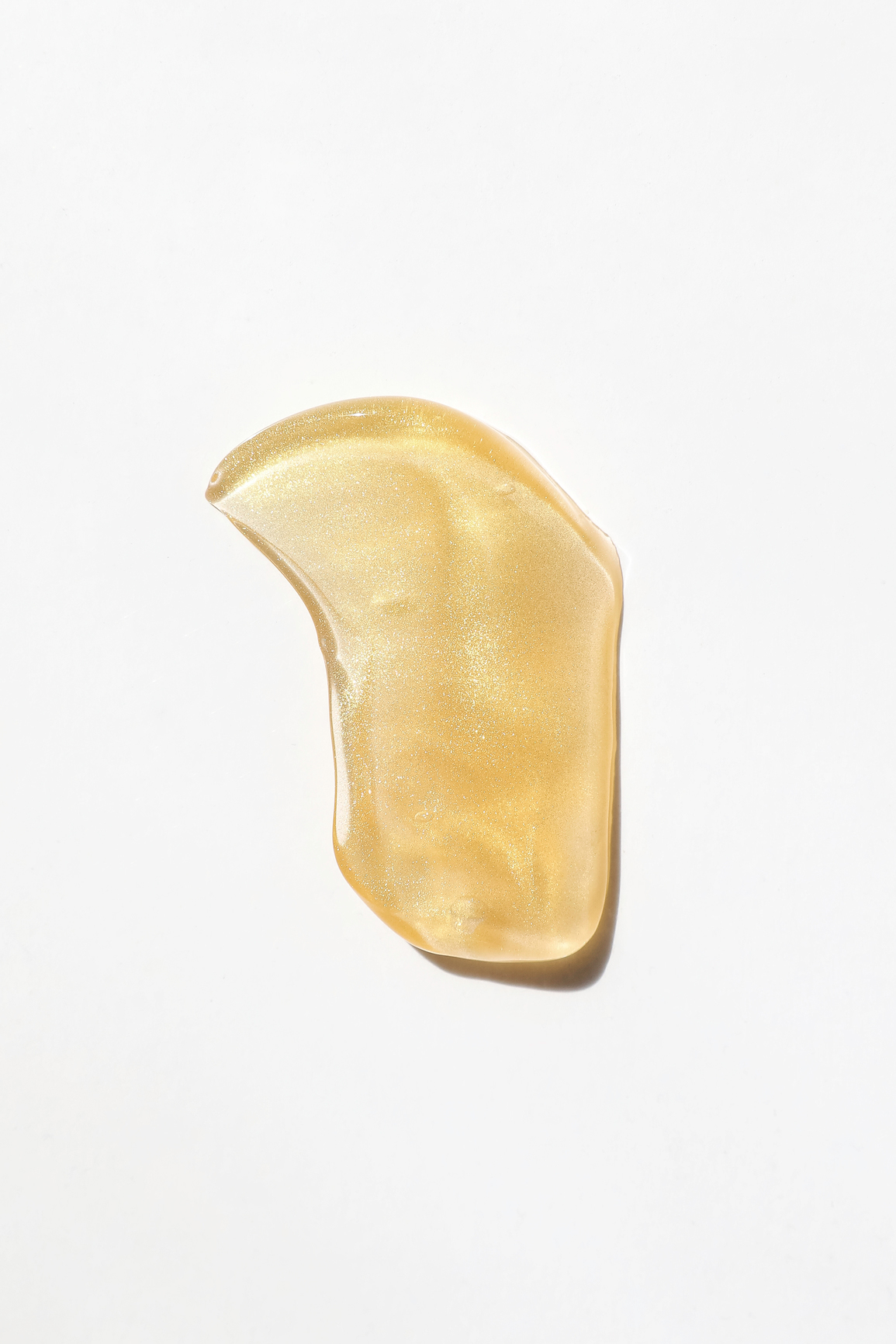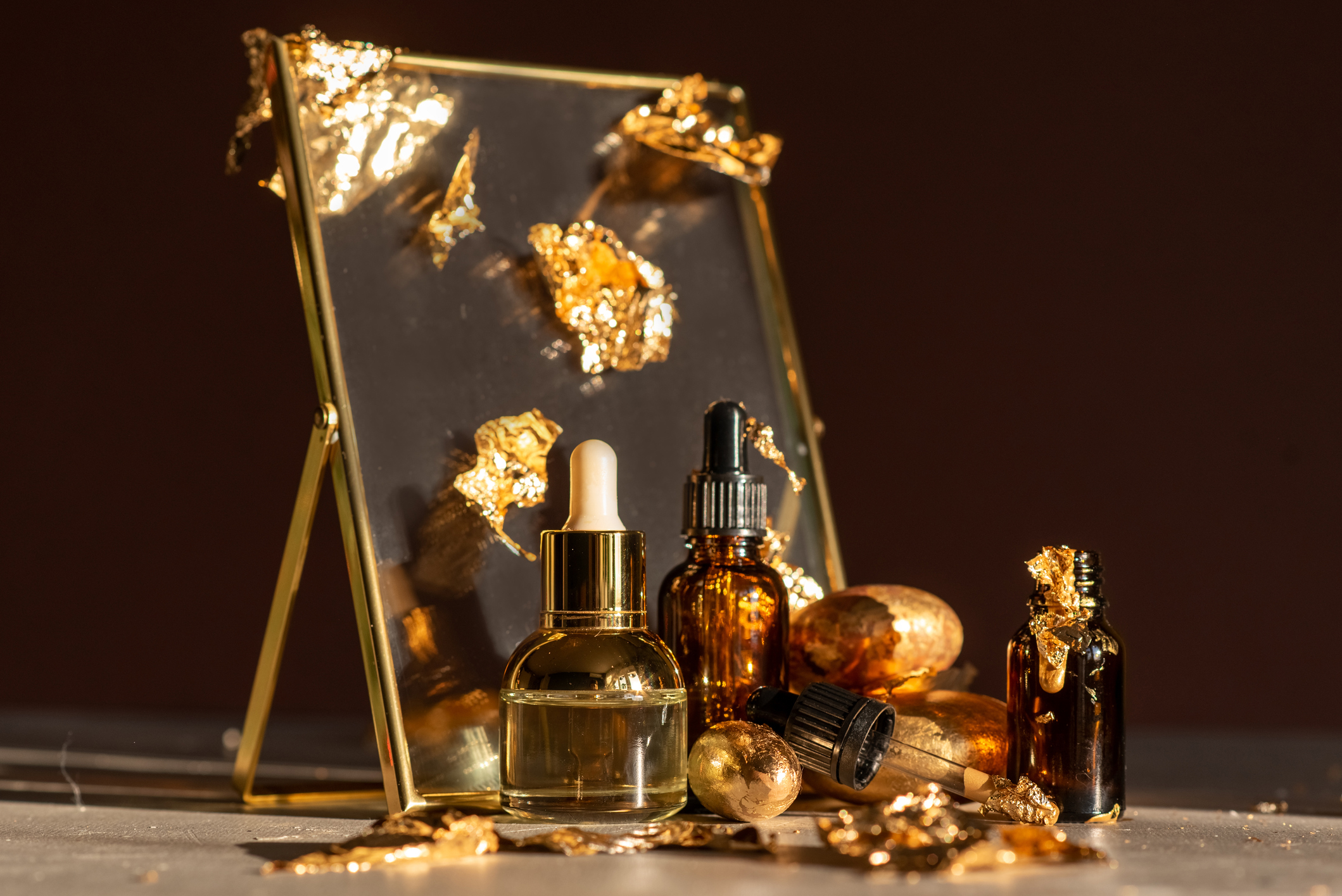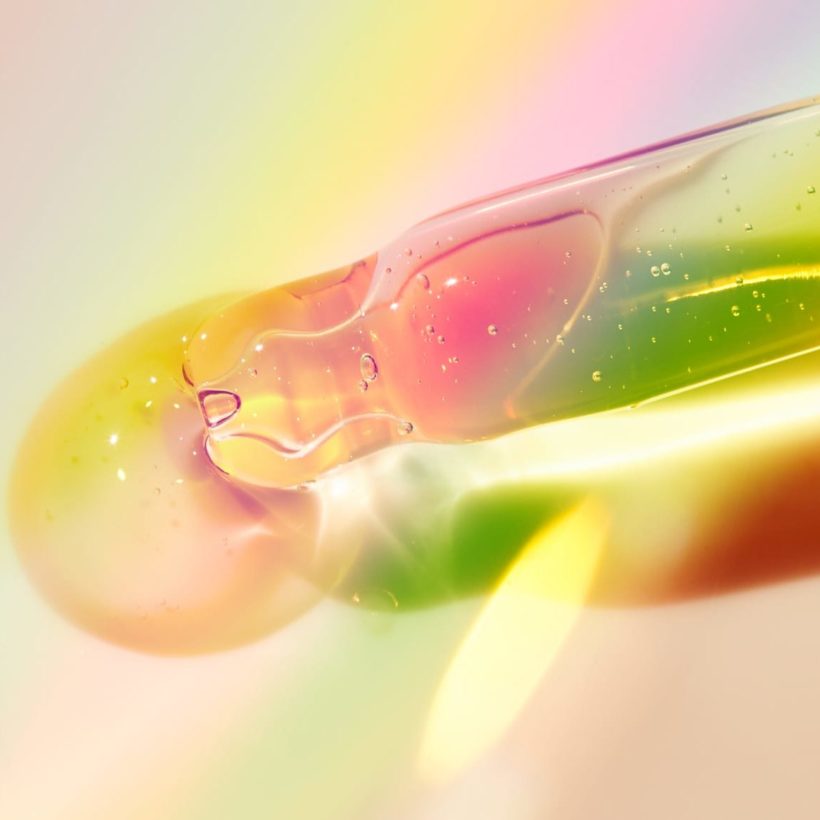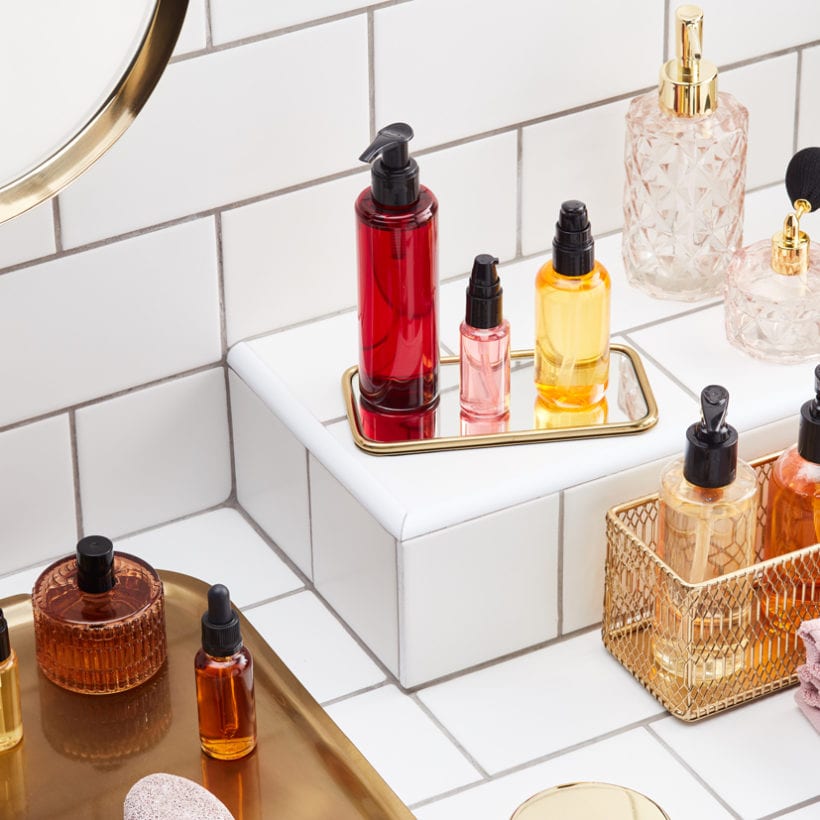Athletes aren’t the only ones that are chasing the gold. Gold in skincare products has made your shelfies a lot more Instagrammable over the past few years, but is there something more to the luxurious ingredient than pretty packaging? We turned to Vanessa Coppola, FNP-BC, board-certified nurse practitioner and owner of Bare Aesthetic Medical Spa to break down all your burning questions about using gold as part of your routine.
What is it?
Just like you learned in chemistry class, gold is a metal. When it’s incorporated into skincare products, it’s in the form of colloidal gold (a.k.a. “nano gold,” which are tiny gold particles that float in a liquid-based formula) or 24K gold powder.

Who can use it?
If you have sensitive skin, you might want to tread carefully: “if an individual would like to try a product containing gold, a pragmatic approach of trial and error would probably be best. Do a patch test to check for any sensitivity or reaction due to the high allergenic profile of gold as a metal,” says Coppola. You might want to avoid pairing the ingredient with other potentially irritating ingredients (especially ones you haven’t used before) like acids and retinol.
What are the benefits?
“There aren’t hard and fast clinical studies that have established the benefits of gold,” says Coppola. But experts are still excited about its potential:
- It has antibacterial and anti-inflammatory properties: “Specifically gold nanoparticles have been investigated for their antibacterial as well as anti-inflammatory properties. Gold nanoparticles have been studied for their role in dealing with inflammatory conditions such as rheumatoid arthritis, in the field of oncology, in regard to their potential application to skin cancer as well as a possible role in wound healing in the diabetic population,” says Coppola.
- It can help other skincare ingredients be more effective: “At a certain molecular size, gold nanoparticles have the ability to penetrate the bi-lipid membrane of the skin,” says Coppolo. This could help gold carry other active ingredients into your skin. “This has both positive and negative consequences: The same permeability of gold nanoparticles in the skin can cause a host of side effects, some minor such as localized irritation and some much more severe such as significant inflammation in the lungs and the digestive tract,” says Coppola. “At the concentration in a topical form, this is likely rare, however, the potential does exist especially if you have sensitivity to metals, and many products are not regulated in their composition.”
- It can rejuvenate skin: According to studies, gold nanoparticles can accelerate wound healing thanks to its antioxidant properties. “The potential benefits of gold as a tool for anti-aging and rejuvenation are very exciting. Gold plays a role in cellular synthesis and inflammation. However, unfortunately the data at this point in time is lacking,” she says.
- It’ll give your skin a glow: Even though its complexion-enhancing powers aren’t as studied the way vitamin C or acids are, the tiny specks of gold are sure to give your skin a subtle glowiness since it’s a highly reflective metal. Though its shine-inducing abilities are temporary, it’s satisfying when you want those instant results.
When shouldn’t you use it?

“It is important to note that gold in large quantities can be very toxic. Therefore one would want to be prudent in the amount of product that they use containing gold particles,” says Coppola. Because of this, you want to make sure you’re following the usage instructions to your skincare product. “Also, if gold is not of a certain size it will not be able to penetrate the skin,” she says. The format of your gold skincare is important — a moisturizer, serum, face oil, or toner that sinks into your skin will get you faster results than a product that you rinse off (like a cleanser). As with starting any new ingredient, it’s best to start off slow with using a new product once or twice a week and stick with a consistent routine.
Is it safe?
While it’s generally considered safe for your skin (granted you do a patch test to make sure there’s no allergic reactivity), there’s limited scientific data on the effects it has on your skin when it’s incorporated into your beauty products. There aren’t any FDA guidelines when it comes to gold in skincare, but since gold isn’t soluble, there’s little risk when it comes to using it in topical skincare products. Just make sure to read the label to check for other ingredients in your product that could be irritating.
We only recommend products we have independently researched, tested, and loved. If you purchase a product found through our links, Sunday Edit may earn an affiliate commission.







